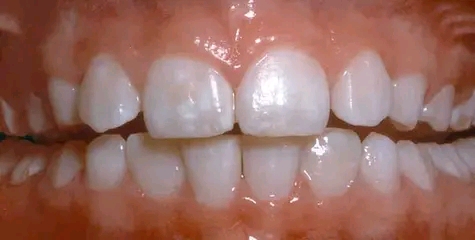
In her routine sensitization on public health issues, Aminata Sillah a public health officer spoke on the significance of teeth brushing saying it enhances oral health and gives a person a pleasant odour in public
.”Brushing teeth properly helps prevent cavities, and gum disease, which causes at least one-third of adult tooth loss. If teeth are not brushed correctly and frequently, it could lead to the calcification of saliva minerals, forming tartar. Poor dental health has been associated with heart disease and shortened life expectancy.”
She pointed out that Many serious problems result from not maintaining proper oral hygiene. Not brushing teeth causes harmful bacteria to build up on teeth and gums. Bacteria growing in the mouth can infect the gums and then can travel into blood vessels. When gingivitis and periodontitis bacteria move into the blood vessels, it can cause inflation and damage vessels.
” It clogs blood vessels, making it hard for blood to flow and can lead to blood clots, heart attacks, and strokes. there are other factors including gender, alcohol consumption, diabetes, exercise, smoking, and family history of heart problems that could increase the risk of coronary artery disease as well. there is a proven correlation between poor oral health and coronary heart disease.” She stressed.
Madam Sillah further highlighted the negative side effect of not brushing one’s teeth which causes bad breath. Not brushing properly allows remnants of food to collect on the teeth, gum line, and the surface of the tongue. but not brushing one’s teeth particularly increases the risk. properly brushing teeth to remove bacteria that contribute to oral odours will improve oral hygiene and keep your breath smelling as fresh as possible.
” Gum and tooth health was maintained if brushing removed dental plaque more often than every 48 hours, and gum inflammation happened if brushing happened at intervals longer than 48 hours. tooth brushing can remove plaque up to one millimetre below the gum line.
She added that a thorough tooth brushing once a day is sufficient for maintaining oral health and that most dentists recommended patients brush twice a day in the hope that more frequent brushing would clean more areas of the mouth. It is believed that bacteria survive on toothbrushes for over 24 hours in moist conditions, less so when air-dried, though they can pick up contamination from the surrounding environment.
“Brushes can be decontaminated by soaking for 20 minutes in mouthwash. Harmful bacteria are present on brushes of healthy and sick people, and can add to their infectious load.”
One study found that brushing immediately after an acidic meal (such as diet soda or common breakfast foods like orange juice, citrus fruit, dried fruit, bread, or pastries caused more damage to enamel and dentin compared to waiting 30 minutes. ”
She explained that Flushing the acid away with water or dissolved baking soda could help reduce acid damage exacerbated by brushing. The same response was recommended for acid reflux and other acidic meals. Researchers and dentists have concluded that brushing immediately after consuming acidic beverages should be avoided




